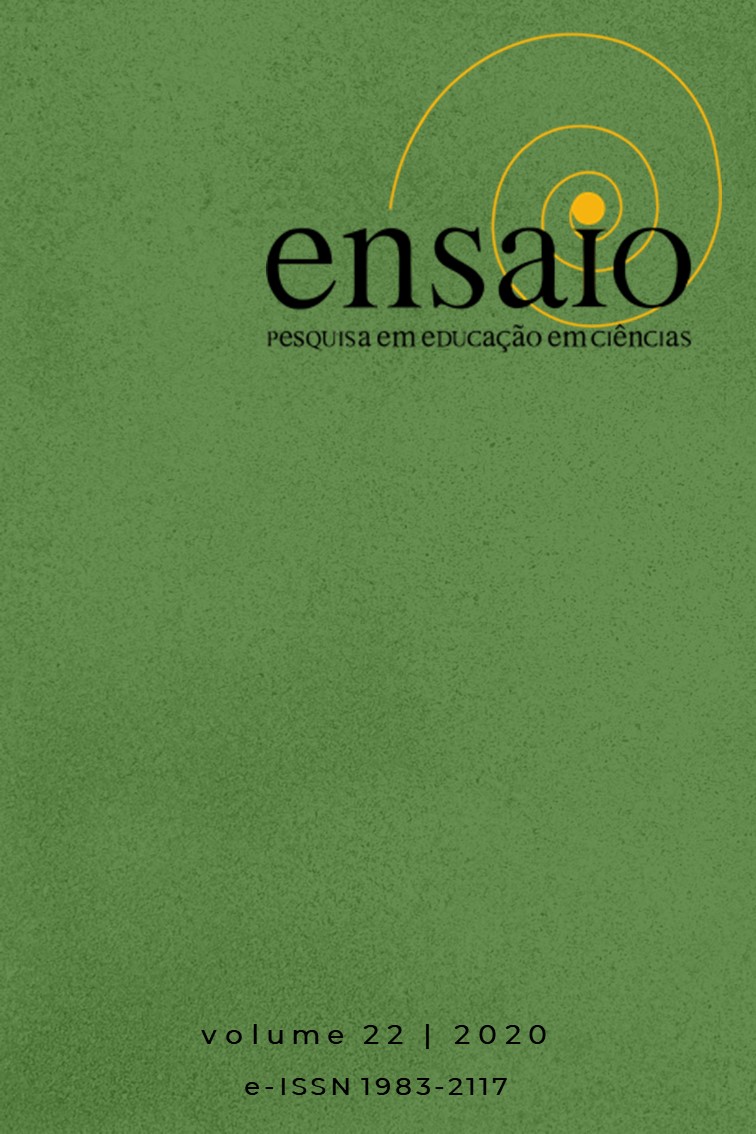ACADEMIC TECHNOLOGY CENTER OF XXX AS A COMMUNITY OF PRACTICE AND POSSIBILITY OF CREATION OF NON-FORMAL LEARNING SPACES
AN ETHNOGRAPHIC STUDY
DOI:
https://doi.org/10.1590/21172020210128Keywords:
Community of practice, Non-formal learning spaces, Physics education.Abstract
Provide authentic learning experiences in the training of students is a challenge for many educational institutions. The search for ongoing initiatives that may contribute to achieving this objective may expose possibilities for future actions. In this work we present the results of an ethnographic study in a Center of Academic Technology of a Brazilian public university. We assume that its knowledge management model can be used to foster non-formal learning spaces. As a result, we were able to typify it as a community of practice, identifying its structural elements. This characterization can inspire the creation of similar centers in other teaching institutions assisting professionals interested in expanding the training opportunities for their students.
Downloads
References
ANGROSINO, M. Etnografia e observação participante. Porto Alegre: Artmed Editora S. A., 2009. [ Links ]
BINKLEY, M. et al. Defining Twenty-First Century Skills. In: GRIFFIN, P.; MCGAW, B.; CARE, E. Assessment and Teaching of 21st Century Skills. Dordrecht: springer, 2012. p. 17-66. DOI: https://www.springer.com/la/book/9789400723238 [ Links ]
CASTRO, F. R. Há sentido na Educação Não Formal na perspectiva da Formação Integral? Museologia & Interdisciplinaridade, Brasília, v. IV, n. 8, p. 171-184, dez. 2015. Disponível emhttp://periodicos.unb.br/index.php/museologia/article/view/17166. Acesso em: 28 abr. 2020. [ Links ]
CRESWELL, J. Investigação Qualitativa e projeto de pesquisa. 3. ed. Porto Alegre: Penso, 2014. [ Links ]
FETTERMAN, D. M. Ethnography: Step-by-step. 3ª Ed. Thousand Oaks: SAGE Publications Ltd., 2010. [ Links ]
GOHN, M. G. Educação Não Formal nas Instituições Sociais. Revista do Programa de Pós-graduação em Educação da Unochapecó, Chapecó, v. 18, n. 39, p. 59-75, set./dez. 2016. DOI: http://dx.doi.org/10.22196/rp.v18i39.3615. [Links]
LAVE, J.; WENGER, E. Situated Learning legitimate peripheral participation. New York: Cambridge University Press, 1991. [ Links ]
MILES, M. B.; HUBERMAN, A. M. Qualitative Data Analysis. London: [s.n.], 1994. [ Links ]
MOREIRA, M. A. Grandes desafios para o ensino de física na educação contemporânea, Brasília, v. 1, n. 1, 2017. Disponível em: https://www.if.ufrj.br/~pef/aulas_seminarios/seminarios/2014_Moreira_DesafiosEnsinoFisica.pdf. Acesso em: 28 de abr. de 2020. [ Links ]
PEZZI, R. et al. Desenvolvimento de tecnologia para ciência e educação fundamentado nos preceitos de liberdade do conhecimento: o caso do Centro de Tecnologia Acadêmica. Liinc em Revista, Rio de Janeiro, v. 13, n. 1, p. 205-222, Mai2017. Disponível em: http://revista.ibict.br/liinc/article/view/3757. Acesso em: 28 de abril de 2020. [ Links ]
WENGER, E. Comunidades de Práctica: Aprendizaje, significado e identidad. Barcelona: Paidós, 2001. [ Links ]
WENGER, E.; MCDERMOTT, R.; SNYDER, W. Cultivating Communities of Practice. Massachusetts: Harvard Business School Press, 2002. [ Links ]
WENGER, E.; TRAYNER, B. Communities of practice a brief introduction. Wenger-Trayner, 2015. Disponível em: http://wenger-trayner.com/wp-content/uploads/2015/04/07-Brief-introduction-to-communities-of-practice.pdf. Acesso em: 28 abril 2020. [ Links ]


